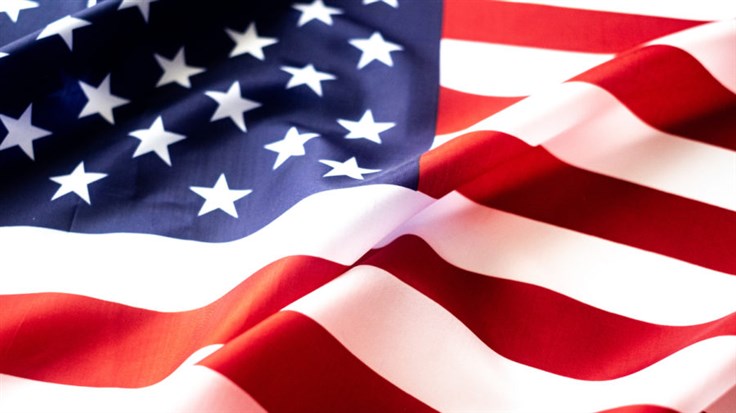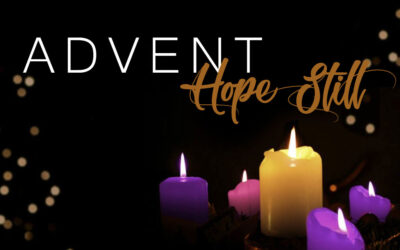Vol. 8-46 – 11-12-2023 – Veteran’s Day 2023-A Day for Remembrance
After these things God tested Abraham and said to him, “Abraham!” And he said, “Here I am.” He said, “Take your son, your only son Isaac, whom you love . . . –Genesis 22;1-2a
Can you imagine taking your son to a mountain to die? What if you had four sons, and gave them over to the military to fight for your nation, not knowing if they would come back alive? The story that follows was not uncommon in the hearts of families during the dark days of World War II. Soldiers Only Cry When We’re Alone, Harvey J. Whitmore.
I have used excerpts from this book in the past. I thought today I would share some excerpts from the long prologue. I am hoping that you will get a flavor of personal history. Staff Sgt. Howard Whitmore, Donna’s uncle was killed in action in World War II. Donna’s dad, Pvt. James Whitmore and the twins Howard and Harvey, along with another brother, Tech. Sgt. John Whitmore, served our nation. The book was a compilation of the letters sent back home and some background. Howard J. Whitmore, the author, is the surviving son of Tech. Sgt. Harvey A. Whitmore. Give some thought to the costs to our families and nation at war, primarily for the interest and well-being of our allied nations. They gave the best years of their lives in military service for you and me.
Letters were slow in their arrival, not like communications today. Skype. Email. Smartphone. Those are the communication methods today. Telegrams brought dread, and fear that a loved one died in the war. Interestingly, some soldiers sent recordings home. On small records that had scratchy sounds along with the voices. Whole families would gather around the record player to hear the ones they loved provide a recording.
I met Harvey as he worked in the same printing company as I did. He was warm and had a great sense of humor. Courteous. Would call you “sir.” You might think it was a carry-over from the military, but it really was who he was. I only had bits and pieces of the family history; then we were able to get a copy of the book.
The Whitmore family lost their dad because of a hunting accident. While hunting with a group of men, they crossed a fence and a rifle discharged. Their dad was hit, and the resulting infection took his life. Their mother was left to raise six children. Refusing to take welfare, she just worked hard to raise them.
The “boys” would do anything to help. Whatever job was available, they were available. They were athletic. Fast-pitch softball was a favorite. Boxing, another.
Harvey served with distinction and honor in the 97th Infantry Division, at age 19. Young people matured very quickly during those war years. The skills they learned carried them forward in life. Harvey and Howard, his twin, were the last of the six children—four brothers and two sisters. The sisters, Helen and Florence worked to produce needed materials for the war effort.
It was during the Depression that their mom struggled to raise her family. Years later she was asked how the Depression affected them—Harvey quickly responded that they were always depressed, so they never noticed it.
The twins had an inseparable bond. Took the same classes in school. Same activities. Same sports (basketball, baseball, fast-pitch softball, wrestling, and boxing). The boys were a handful in school. One time Harvey was caught eating an apple in class—a no, no. He was told to get rid of it. He immediately ate it all—that is, seeds, core, and stem-and-all.
During the early war days, it was mainly a conflict in Europe and in China. The news began to get under the skin of the citizens of the U.S. They began to wonder how long it would be until they were drawn into the wars. The military in the U.S. had fewer numbers than Switzerland’s army, about 180,000 troops. Reserves totaled around 190,000 troops.
The reserves were activated, and a “peacetime’ draft was instituted for men ages 21-35 years, and only for one year. The army increased to 800,000 troops, yet it was apparent it would not be enough and that the draft would have to be extended beyond one year. The hope of the government was that the soldiers would re-enlist. Then it became apparent that there was not going to be a stampede to re-enlist. Thus, the service for reserves and draftees was changed to an indefinite amount of time. Soldiers came to understand that they were in for the duration.
Then on December 7, 1941, the Empire of Japan attacked the U.S. at Pearl Harbor. War was declared on the Japanese the next day, and Germany and Italy declared war on the U.S. four days later. Nearly every family in America was involved in some way in the war effort. There was a great sacrifice of one’s goods and energy for the good of the nation.
Ration books were issued, beginning in 1943. Shoe limitations. Meat was rationed to 28 oz per person/per week. Sugar. Coffee. Tires. Clothing. Fuel. No cars were available to purchase; the lines had been converted to war equipment (tanks, jeeps, trucks, planes). Donna and I lived in Schenectady NY in our early years of marriage. We discovered that it was in Schenectady where the largest manufacturing of locomotives occurred. The company at one point was fabricating one locomotive per day. Medicines were sent out to the troops first. Blood drives took place regularly so that the troops could be supplied with needed blood. Tin, zinc, steel, aluminum, and rubber tires were recycled.
Hourly wages and salaries were frozen beginning in 1943. Before the war, women were not allowed to work alongside men because the factories had been a man’s domain. The men were mostly off to war. The women filled in. Married women were allowed to work as well.
Communities came together regularly to support the troops by volunteering for coffee canteens at train depots, and by buying war bonds. Most bonds were purchased by banks and investors. But individuals and soldiers also purchased shares. During these days, even Hollywood movie stars went out and urged people to support the war effort. A significant difference from today’s Hollywood’s elite. One actress sold kisses for $25,000 with all the money going to pay down the war debt.
All Americans sacrificed in some way. The ones who gave the most were enlisted or drafted soldiers. Many gave the ultimate sacrifice for their country. By this time the draft age had been changed to 19-45 years of age. Following Pearl Harbor, the enlistments soared to massive numbers.
In the early days of the two-front war, the news was depressing. Wake Island fell. The Philippine Islands were invaded, surrendering in 1942. There was the horror of the Bataan Death March. The war on that front changed when Lt. Col. James Doolittle led the B-25 bombers in a raid on Tokyo and Yokohama. The U.S. Navy turned back the Japanese at Coral Sea, and at Midway Island.
It was on February 23, 1943, that Harvey and Howard (both 19) were inducted into the Army. I was 5-days old when they enlisted. They had a short training course and were sent to Europe. It was there that Howard paid the ultimate price for our freedom.
The book continues, including the letters that came home from the war. The book is a treasure of the personal experiences of one of the many thousands of heroes of our past patriots. They also expose the dependency that families had on their/our Almighty God. How they reacted to the loss of life—fathers, brothers, sons.
How would you have lived through those days?
—re-framed from Soldiers Only Cry When We’re Alone, by Howard J. Whitmore
When we think toward suffering, how far back do we go? Just to the recent? Family suffering? National suffering. International wars? What has that suffering looked like? Has it lingered? Has someone stood in for our suffering, giving of His own life, and has that act offered our only way of peace in a forever way? Yes. It is through Christ that this world’s suffering is dispensed. It is only through personal belief in Him that we will be free from eternal suffering. Read about how far His peace covers, in Ephesians 3.
The Old Rugged Cross
On a hill far away stood an old rugged cross,
The emblem of suff’ring and shame.
And I love that old cross where the Dearest and Best
For a world of lost sinners was slain.
Refrain:
So, I’ll cherish the old rugged cross,
Till my trophies at last I lay down.
I will cling to the old rugged cross,
And exchange it someday for a crown.
Oh, that old rugged cross, so despised by the world,
Has a wondrous attraction for me.
For the dear Lamb of God left His glory above
To bear it to dark Calvary.
In that old rugged cross, stained with blood so divine,
A wondrous beauty I see.
For ’twas on that old cross Jesus suffered and died,
To pardon and sanctify me.
To the old rugged cross I will ever be true,
Its shame and reproach gladly bear.
Then He’ll call me someday to my home far away,
Where His glory forever I’ll share.



